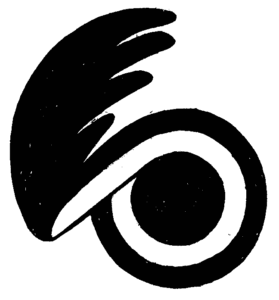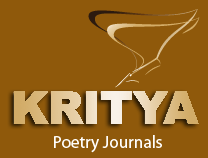
In the Name of Poetry

\
Writing and Interpretation of Poetry
Thampi jayasingh
From a genius poet thoughts and feelings come out naturally. Form is a< natural one. It is not invented. Rules always follow genius mind. Then other inferior minds follow rules. When he writes poems he never premeditates the form and most of the times content also. But when he finishes, some are reflective poems, some are symbols, and some are short lyrics. It depends on his vision, his mood, his flow, his inspiration and so on. A poet uses symbols purposely or naturally when he is not free or willing to convey something plainly and very rarely for poetic beauty. The objective correlative used by the poet is a symbol of what the poet intents to say. When a poet suggests a particular object or person sometimes it indicates the same object or person but sometimes it generalizes. Likewise sometimes when he suggests some general qualities it is attributed to a particular object or person. This subtlety of poetry is sometimes very tricky to understand. Generally poets are classified as romantic, symbolist, mystic and so on. But in my view all poets can write different types of poems. It all depends on in which mood they write. The poet’s mood is an important aspect to be considered in the criticism of poetry. Poetic mood can be a separate study also. They write in different moods like romantic mood, meditative mood, mystic mood, reflective mood and so on. Some poets can write only when they experience a particular mood then these poets can be classified as romantic poets or mystic poets. Others may be able to write in different moods and so their poems also differ. Likewise there is a slightest possibility of a mix of moods during the process of writing a single poem. I believe, each poem of some poets at least carries a different definition and mechanics because they write poems in all the above mentioned moods, sometimes in tension, inspiration and intuition. Poets write some poems in some peculiar moods and situations which are hidden and not obvious in their poems. Sometimes there are symbols the poet wants the reader to interpret as he wishes. Some symbols the poet wants the reader to understand properly but the reader wrongly interprets. The ingredients of a poem may be of thoughts, feelings, emotions, imaginations, visions and dreams aided by the five senses. Considering all the above mentioned things there can be some efforts from the part of a poet to give a brief note below each poem describing in which mood and which background he has written the poem. A craftsman poet is also doing well to poetry, especially poetry as an art form. He is a wordsmith carefully crafting words to their perfect ness like a sculptor or a painter. But on the other hand the free flow of words from a genius poet is like the effortless meditative strokes of colors from a master painter. No wonder Whitman and Wordsworth believed their souls than their mental faculty to create words. Mystics are mostly in a meditative mood to depend more on flow than on craft. I too am a mystic most of the times when I write poems. It gives me a mystic pleasure. But I have recently found another pleasure in purposely creating the form and words. In a mystic work spirit of the poem is more powerful while in a craftsman’s work words are more powerful.
( Reprint in kritya

